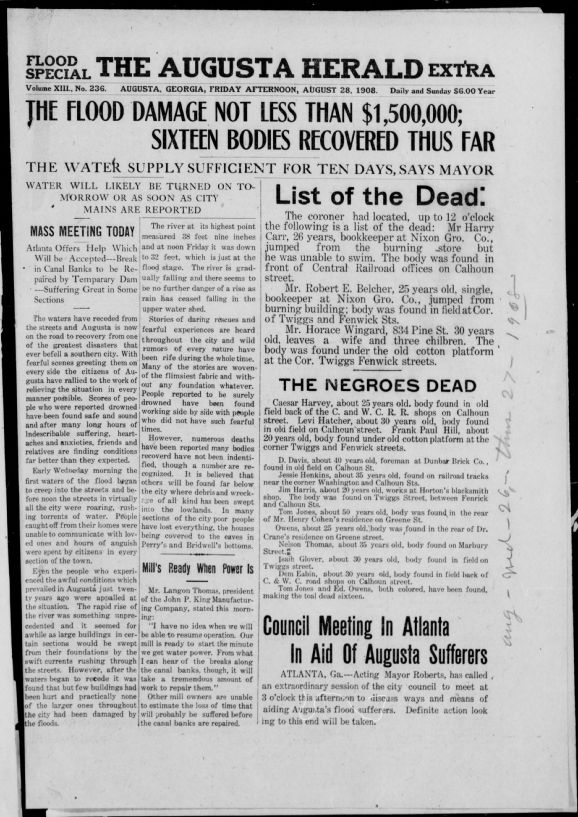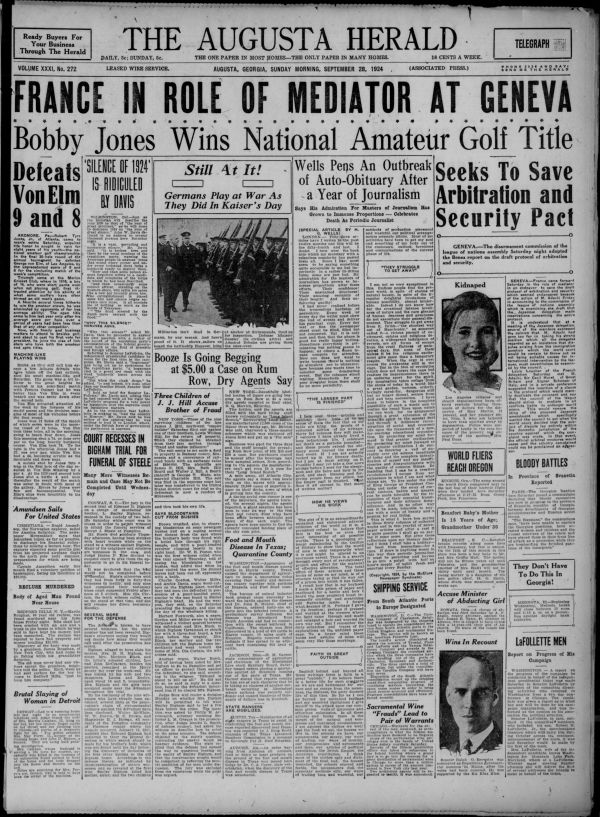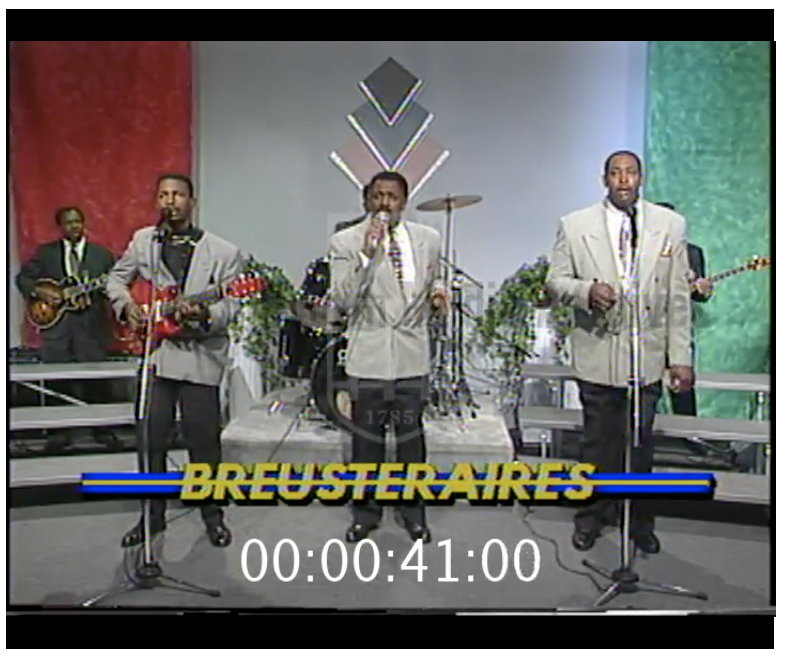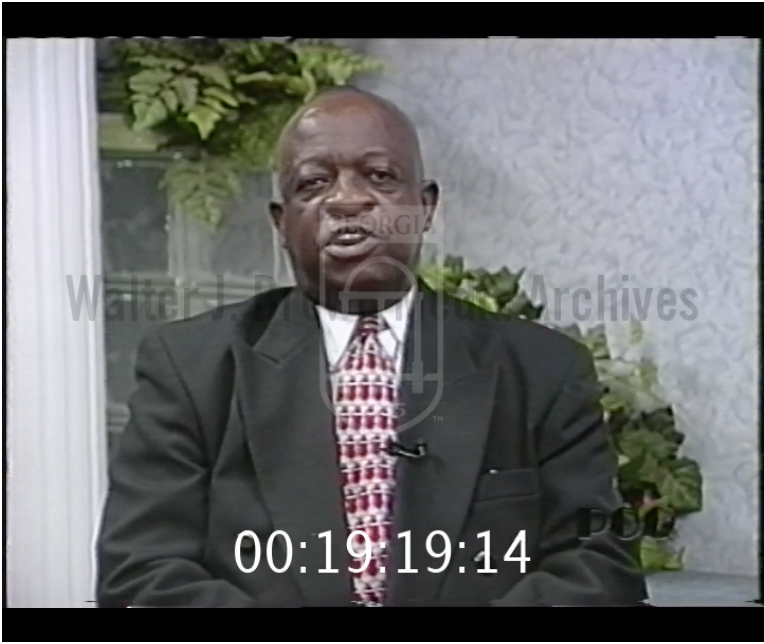Through a partnership with the Augusta-Richmond County Library System, the Digital Library of Georgia has completed the digitization of three Augusta Herald titles dating from 1898 to 1924, comprising 6,993 issues and 91,708 pages. The issues are now available online at the Georgia Historic Newspapers website at gahistoricnewspapers.galileo.usg.edu/.
The three titles digitized are:
The Augusta Daily Herald, 1908-1914
The project marks the first time twentieth century Augusta newspapers have been made freely available online to the public. The Augusta Herald was established in 1890 by former employees of the Augusta Chronicle and published daily in the afternoon to compete with the morning edition of the Chronicle. By 1915, the Augusta Herald had surpassed all competition and boasted the city’s largest circulation rate. William and Florence Morris of the Southeastern Newspapers Corporation acquired the Herald in 1955, putting the publication under the same parent company as the Augusta Chronicle. The Herald continued circulation through most of the twentieth century before ceasing publication in 1993.
$45,000 of funding for this project was provided by the Knox Foundation, and $5,000 was provided by the Friends of the Augusta Library.
Tina Monaco, the historian for the Georgia Heritage Room at the Augusta-Richmond County Library System, says:
This project has been in the works for several years, and the Augusta-Richmond County Public Library System is thrilled to see it completed and to finally have a significant portion of the Herald freely accessible to the public. The lifespan of the Herald, Augusta, Georgia’s longtime evening newspaper, follows almost 100 hundred years of local history, and the nearly thirty years (1898 to 1924) the Digital Library of Georgia has digitized chronicles a remarkable time in the history of our city, our country, and the world. Researchers will have the opportunity to read about the changes wrought as the world moved through the turn-of-the-twentieth-century, World War I, the Spanish Influenza, the passing of the 19th Amendment, Prohibition, and many other landmark events. The Augusta Public Library is indebted to the Knox Foundation and the Friends of the Augusta Public Library for their generous financial support, without which this project would have never made it off the ground.
Selected Images

Augusta Herald, August 28, 1908
“Flood Damage Not Less Than $1,500,000”

Augusta Herald, September 28, 1924
“Bobby Jones Wins National Amateur Golf Title”
About Augusta-Richmond County Public Library System
The Augusta-Richmond County Public Library System (ARCPLS) is a public library system serving more than 250,000 county residents. As a member of Public Information Network for Electronic Services (PINES), a program of the Georgia Public Library Service covering 53 library systems in 143 Georgia counties, ARCPLS supports any resident in the PINES network and provides access to over 10 million books. ARCPLS has a collection size of over 316,000 with a circulation of more than 478,000 annually. ARCPLS facilitates programs and classes to educate and entertain all ages at no cost. In addition to being a vital meeting place where the community can gather, explore new worlds, and share ideas and values, ARCPLS is a community hub and a critical anchor for our residents and neighbors. With a committed and diverse staff, ARCPLS continues to bring innovative and adaptive information and technology to its patrons. Visit ARCPLS at arcpls.org/
About the Digital Library of Georgia
Based at the University of Georgia Libraries, the Digital Library of Georgia is a GALILEO initiative that collaborates with Georgia’s libraries, archives, museums, and other institutions of education and culture to provide access to key information resources on Georgia history, culture, and life. This primary mission is accomplished through the ongoing development, maintenance, and preservation of digital collections and online digital library resources. DLG also serves as Georgia’s service hub for the Digital Public Library of America and as the home of the Georgia Newspaper Project, the state’s historic newspaper microfilming project. Visit the DLG at dlg.usg.edu.



